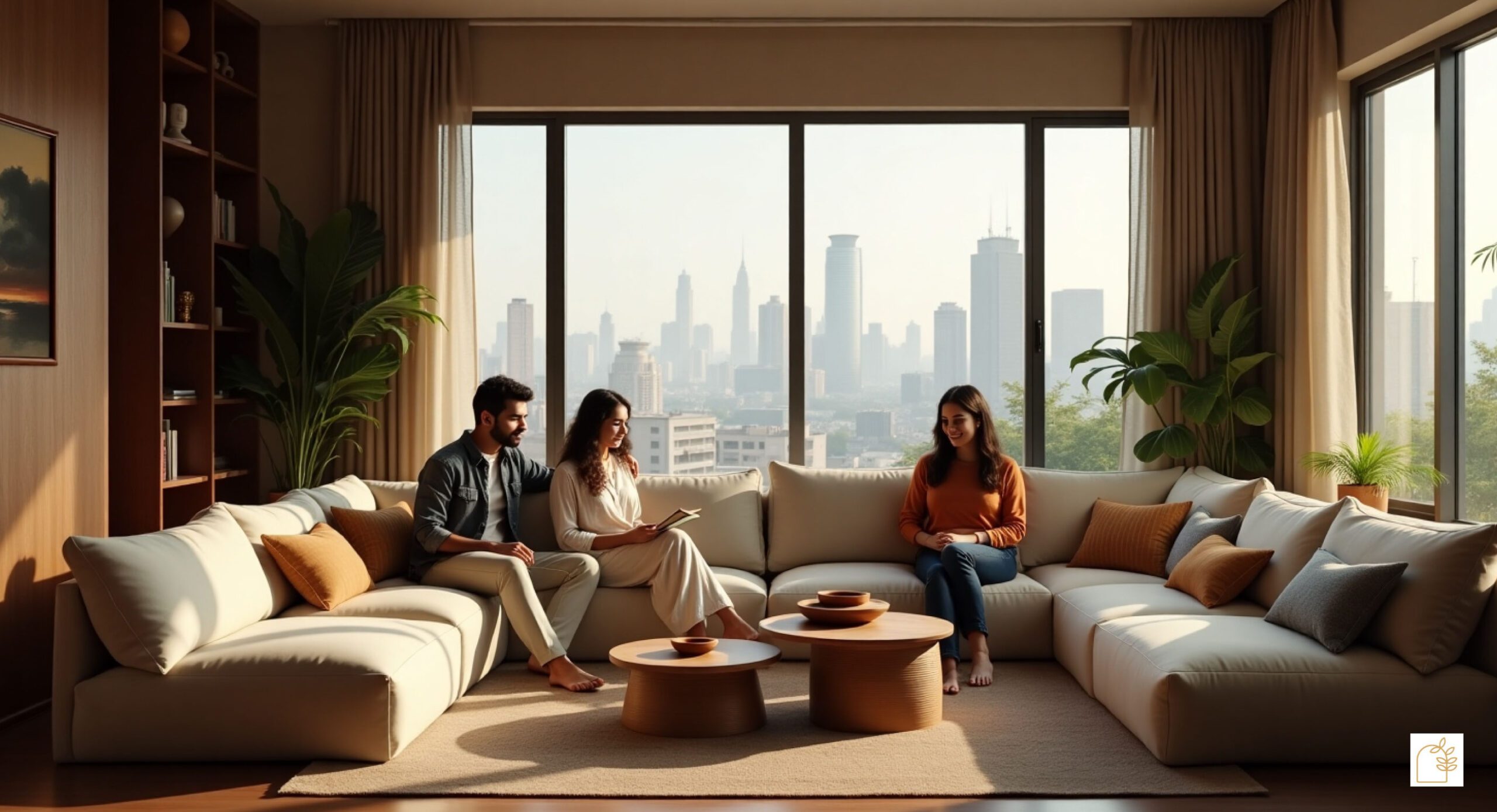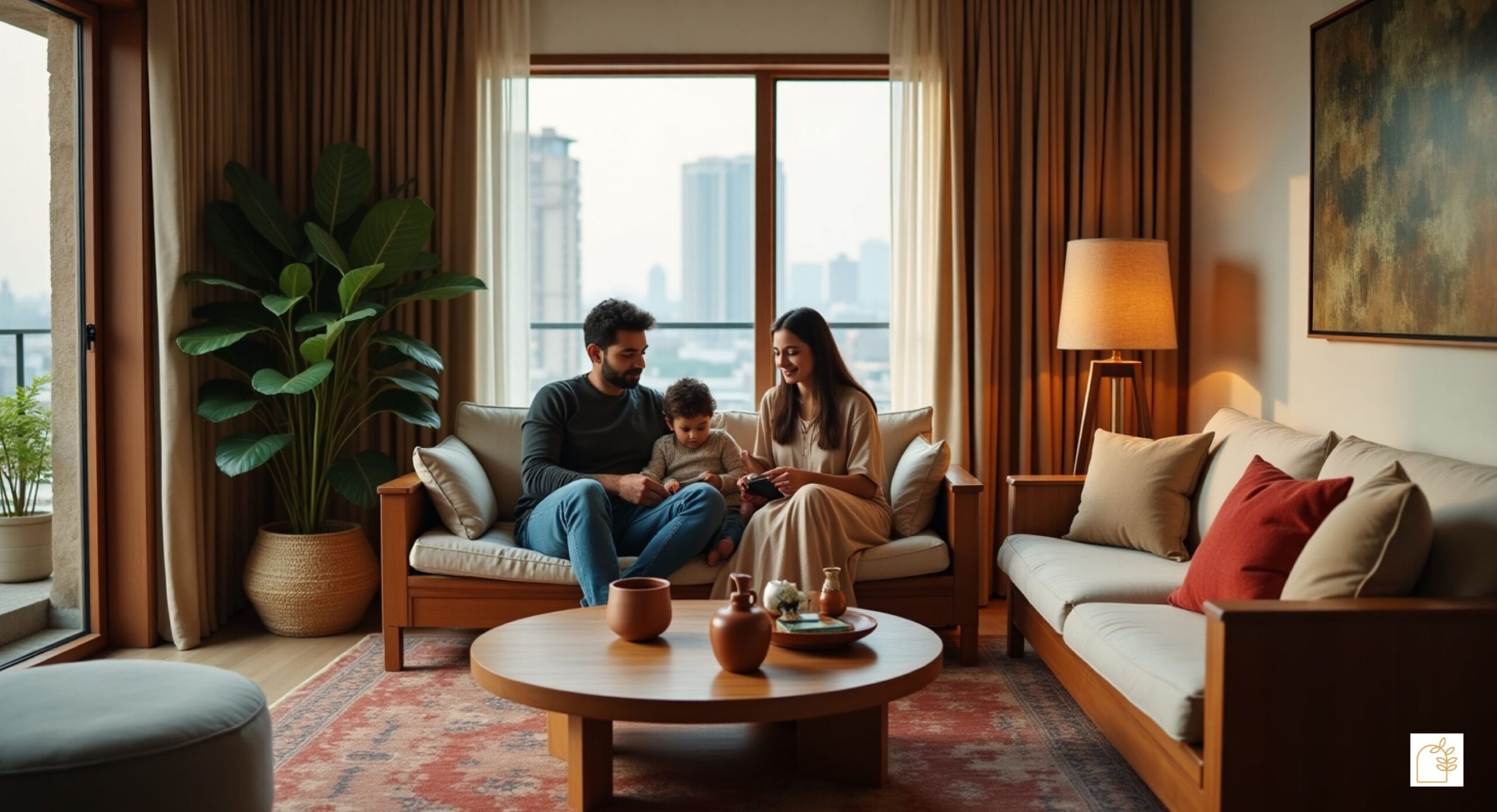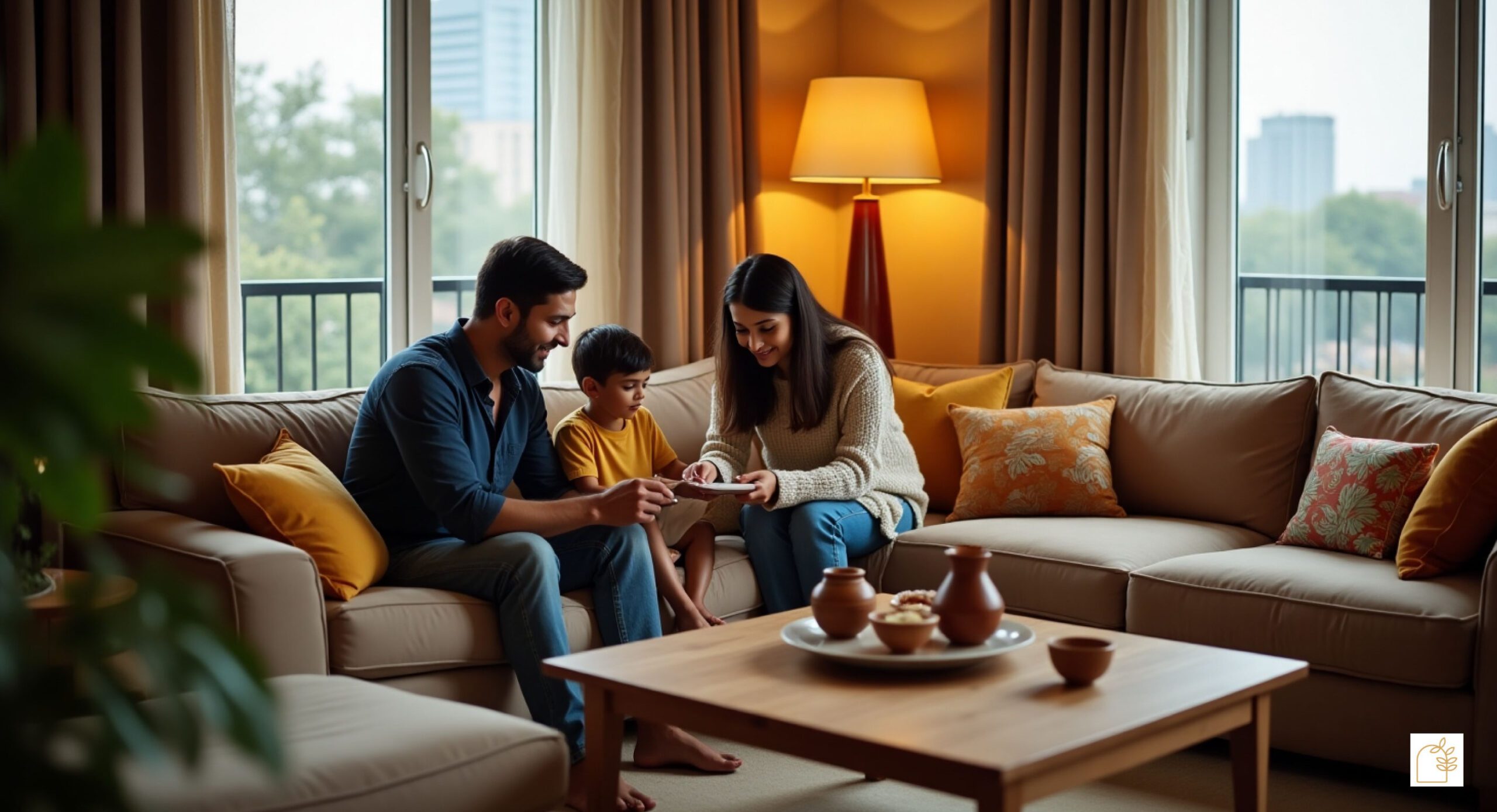In 2025, India’s $1 trillion digital economy and 60.4% digital connectivity are driving a shift toward ethical home decor, with 70% of urban households prioritizing sustainable and fair-trade products (RBI, 2024; Knight Frank, 2024). As 500 million social media users share eco-friendly design trends (Statista, 2025) and 50% of UPI transactions fund home upgrades (NPCI, 2024), ethical decor—using sustainable materials and supporting artisans—is reshaping homes in cities like Bangalore, Mumbai, and Delhi. Costing ₹5,000–₹2,00,000, these solutions align with India’s 20% CAGR in sustainable home products and 40% wellness goals (Economic Times, 2024; CEA, 2024).
Why Ethical Home Decor Matters in 2025

Ethical home decor emphasizes sustainability, fair labor, and minimal environmental impact, resonating with 60% of urban Indians seeking healthier, eco-conscious homes (Financial Express, 2024). With 63 million MSMEs driving artisanal and green innovation (MSME Ministry, 2024), ethical decor reduces carbon footprints by 20% and supports local communities, saving 15% on long-term costs (Drivio, 2025). In cities like Bangalore, where urban stress calls for calming spaces, and Mumbai, where space is premium, ethical decor aligns with wellness and smart city goals. This guide details six key strategies to adopt ethical decor, ensuring homes are stylish, sustainable, and socially responsible.
Key Ethical Home Decor Strategies
1. Sustainable Materials
Use materials like reclaimed wood, bamboo, or recycled metal (₹10,000–₹1,00,000) for furniture, reducing deforestation by 20% and benefiting 50% of Bangalore’s eco-conscious homeowners (The Hindu, 2024).
2. Fair-Trade Artisanal Products
Handcrafted textiles and pottery from cooperatives like Dastkar (₹5,000–₹20,000) support artisans, empowering 40% of Mumbai’s rural crafts communities (Financial Express, 2024).
3. Low-VOC Paints and Finishes
Low-VOC paints from Asian Paints or Nerolac (₹2,000–₹10,000) reduce indoor air pollution by 15%, improving health for 30% of Delhi’s families (Economic Times, 2024).
4. Upcycled Decor Pieces

Upcycled items like glass bottle lamps or tire ottomans (₹3,000–₹15,000) cut waste by 20%, popular among 25% of Pune’s creative households (Statista, 2025).
5. Organic Textiles
Organic cotton or jute rugs and curtains (₹5,000–₹25,000), free from harmful chemicals, enhance air quality for 20% of Chennai’s allergy-prone residents (DriveSpark, 2024).
6. Energy-Efficient Lighting
LED lights from Philips or Wipro (₹1,000–₹10,000), integrated into ethical designs, save 25% on energy for 15% of Hyderabad’s urban homes (The Hindu, 2024).
Ethical Home Decor Strategies Table 2025
| Strategy | Cost Range (₹) | Key Benefits | Impact in India |
|---|---|---|---|
| Sustainable Materials | ₹10,000–₹1,00,000 | 20% less deforestation, durable designs | 50% Bangalore homeowners |
| Fair-Trade Artisanal Products | ₹5,000–₹20,000 | Empowers artisans, unique aesthetics | 40% Mumbai crafts communities |
| Low-VOC Paints and Finishes | ₹2,000–₹10,000 | 15% less air pollution, healthier homes | 30% Delhi families |
| Upcycled Decor Pieces | ₹3,000–₹15,000 | 20% reduced waste, creative designs | 25% Pune households |
| Organic Textiles | ₹5,000–₹25,000 | Improved air quality, chemical-free | 20% Chennai residents |
| Energy-Efficient Lighting | ₹1,000–₹10,000 | 25% energy savings, sustainable ambiance | 15% Hyderabad homes |
Applications in India’s Context
- Health and Wellness: Enhances living spaces for 60% of urban professionals (RBI, 2024).
- Sustainability Goals: Supports 40% eco-friendly living targets (CEA, 2024).
- Smart Cities: Integrates with 100+ smart city homes (Smart Cities Mission, 2025).
- Digital Engagement: Drives trends among 500 million social media users (Statista, 2025).
- Economic Growth: Bolsters India’s $50 billion sustainable home market (Economic Times, 2024).
Benefits of Ethical Home Decor
Ethical home decor offers transformative benefits for Indian households. Sustainable materials like reclaimed wood, used by 50% of Bangalore’s homeowners, reduce deforestation by 20% and last 10–15 years longer than conventional options (The Hindu, 2024). Fair-trade artisanal products, adopted by 40% of Mumbai’s communities, empower rural artisans, boosting their income by 15% while adding unique charm (Financial Express, 2024). Low-VOC paints, chosen by 30% of Delhi’s families, cut indoor air pollution by 15%, reducing respiratory issues and allergies (Economic Times, 2024). Upcycled decor, popular among 25% of Pune’s households, minimizes waste by 20% and adds creative flair at low costs (Statista, 2025). Organic textiles, used in 20% of Chennai’s homes, improve air quality and comfort, ideal for humid climates (DriveSpark, 2024). Energy-efficient LED lighting, installed in 15% of Hyderabad’s homes, saves 25% on electricity bills, creating sustainable ambiance (The Hindu, 2024). These strategies align with 40% wellness goals, reduce environmental impact, and create healthier, stylish homes.

2 thoughts on “Ethical Home Decor 2025: Crafting Sustainable, Fair-Trade Spaces in India”